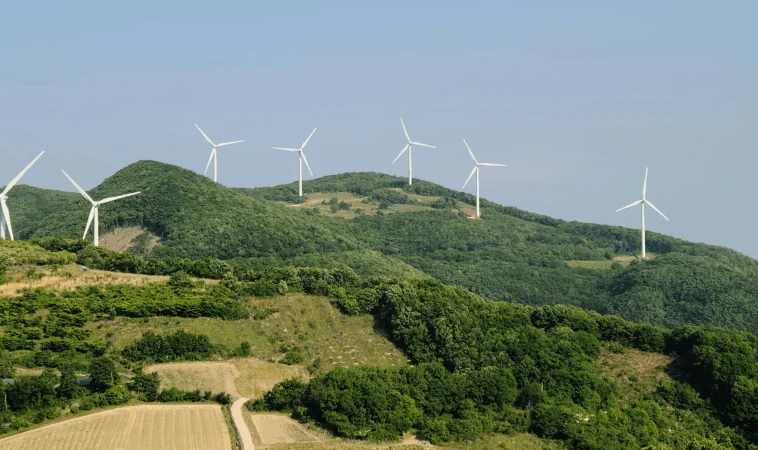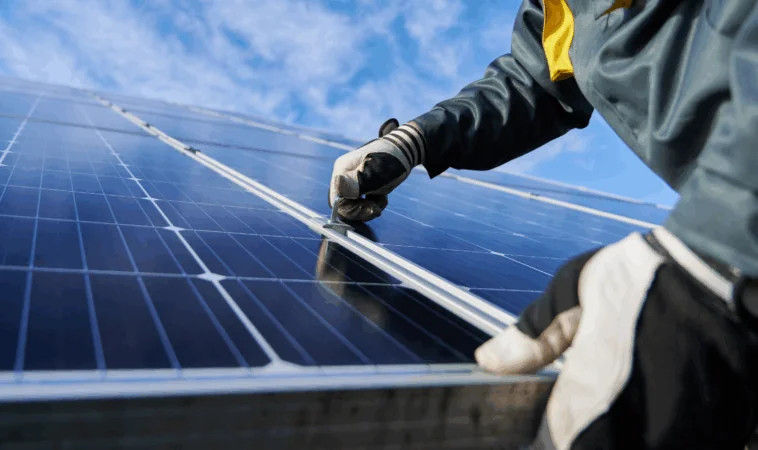
25 countries and the European Union launch a Call to Action to reflect no new unabated coal in their electricity systems as part of their national climate plans.
Baku, Azerbaijan: Today, recognizing that rapidly reducing emissions from coal is one of the most urgent priorities to get on track for a 1.5C pathway, and the first step towards addressing this challenge is end the construction of new coal, 25 countries and the European Union launch a Call to Action for No New Coal. These initial signatories announce their intention to put forward national climate plans that reflect no new unabated coal in their energy systems and call on others to do the same.
Examples of these plans include their next nationally determined contributions (NDCs) under the Paris Agreement, “information for clarity, transparency, and understanding” (ICTU) accompanying our next NDCs, long-term strategies, implementation plans or energy plans. This demonstrates the growing momentum to put domestic policies in place to deliver the ambition of the first global stocktake under the Paris Agreement.
With the Call to Action released today, the endorsing countries launch a diplomatic campaign to encourage all countries to end new coal power in the lead up to the 30th UN Climate Change Conference (COP30) in November 2025.
Ed Miliband, UK Energy Secretary said:
“This year Britain became the first G7 country to phase out coal power as part of our drive to make the UK a clean energy superpower. But the use of coal is still growing around the world and poses one of the biggest threats to keeping 1.5C within reach. The Call to Action for No New Coal sends a clear signal from countries around the world that new coal needs to end by COP30. By putting forward national climate plans that reflect no new unabated coal, we move closer to a future powered by affordable, secure, clean energy.”
Wopke Hoekstra, European Commissioner for Climate Action said:
“The commitment to “transition away from fossil fuels” needs to turn into real steps on the ground. A large majority of countries have already turned their backs on coal power, opting for affordable, reliable, clean energy instead, but globally coal power is still growing. This ought to change. New coal power is one of the biggest threats to keeping 1.5°C within reach. The EU is pleased to support, throughout the next year leading to COP30, a diverse coalition of countries fully committed to anchor an end of new coal power in their upcoming NDCs.”
Omar Andrés Camacho Morales, Colombia’s Minister of Mines and Energy said:
“Colombia is currently facing several challenges, as three key sectors of its economy are dependent on coal: thermoelectric plants, industries with high heat demands like steel and cement, and medium to low heat industries. These sectors require targeted actions for a just transition. Nevertheless, through the Just Energy Transition initiative led by the Ministry of Mines and Energy, we are confident that clean energy can drive industrial growth, attract both domestic and foreign investment, create job opportunities, and reduce economic inequality. In light of this, we join the global call to halt new coal projects and urge all other coal-dependent countries to commit to a ‘no new coal’ policy within their Nationally Determined Contributions (NDCs) before COP30.”
Ruth Nankabirwa Ssentamu, Uganda’s Energy Minister said:
“Despite bearing no responsibility for the climate crisis, we are facing the brunt of extremes it has created like dangerous flooding. At the same time, we have vast potential in renewables. While new coal is being built, we not only increase the damage being inflicted on our country, but also divert finance away from the opportunities in clean energy of which Uganda can be a leader in. We join this Call to Action for No New Coal to demonstrate that coal must end to allow renewables to flourish, and to keep our climate and livelihoods safe.”
The Intergovernmental Panel on Climate Change has made it clear that there is no space for new unabated coal in a 1.5°C or even 2°C aligned pathway, yet coal capacity rose by 2% last year.
Countries also recognized the importance of 1.5C-aligned just and equitable transitions that help ensure workers and communities are not left behind. Their national climate plans will be underpinned by this approach to support vulnerable communities and workers during their clean energy transitions, including through effective social dialogue and stakeholder engagement, acknowledging the importance of the International Labour Organization’s “Guidelines for a just transition towards environmentally sustainable economies and societies for all.”
A full list of initiators of the Call to Action includes: Angola, Austria, Australia, Belgium, Canada, Colombia, Cyprus, Czech Republic, Denmark, Dominican Republic, Ethiopia, France, Germany, Italy, Malta, Morocco, the Netherlands, Norway, Slovakia, Slovenia, Sweden, Uganda, UK, Uruguay, Vanuatu and the European Union.
The Call to Action has been developed in collaboration with the Powering Past Coal Alliance, which seeks the rapid phase-out of unabated coal power. 24 of the endorsing countries are members of the PPCA.
The Call is also supported by the following investor and business organisations, who underlined that commitments to No New Coal are essential to give investors certainty to finance the transition: RE100, the Global Renewables Alliance, Ceres, Asia Investor Group on Climate Change (AIGCC) and Investor Group on Climate Change (IGCC).
Elisa Facio, Uruguay’s Minister of Energy, Industry and Mining said:
“Uruguay generates 98% of its electricity from renewables, benefitting from reliable, affordable and domestic energy By joining the Call to Action on No New Coal, developing country governments can pave a way for more foreign investment in the energy transition in our country. We know businesses prioritise countries with clear commitments and consistent strategies to move to clean energy when making investment decisions.”
Dr Habtamu Itefa Geleta, Ethiopia’s Minister of Water and Energy said:
“Ethiopia wants to fully capitalize on its renewable energy potential, hoping to improve energy access in rural areas, enhance resilience against climate change and foster sustainable growth. By joining this Call to Action, Ethiopia is positioning itself as a leader in the energy transition in Africa, to attract both domestic and foreign investment in the renewable energy sector.”
Steven Guilbeault, Minister of Environment and Climate Change, Canada said:
“Phasing out coal power is one of the most important things we can do to fight climate change. We have reached a tipping point, where electricity from wind and solar is cheaper than from coal. Congratulations to the UK who made history by shutting down their last coal plant. In Canada, we’re committed to the goals of the PPCA; we’re moving to shut down coal power and will soon add new clean electricity regulations. We urge other countries to answer the call for no new coal. It’s good for the climate and good for the economy.”
Agnès Pannier-Runacher, France’s Minister for the Ecological Transition, Energy, the Climate and Risk Prevention said:
“The science is clear: phasing out coal must be an absolute priority to keep climate neutrality within reach. France is ready to lead the way, both domestically and abroad. We will close our last coal plant in 2027, and France launched the Coal Transition Accelerator at COP28 last year to facilitate just transitions in emerging and developing economies, so that no country has to choose between fighting poverty and fighting climate change – as recalled in the Paris Pact for People and the Planet. Ending the construction of new coal is paramount: I therefore urge all governments to join this call to action and to reflect this commitment in their next NDC.”
Stefan Wenzel, Germany’s State Secretary, said:
“Global energy transition becomes more and more self-sustaining. Over 85% of new investments in power capacity expansion go into renewable energies. New coal-fired power plants thus increasingly turn into stranded assets. At the same time, our experience in how the coal phase-out can be made economically secure and fair is growing. Against this background, we can send a clear signal to investors and the energy industry worldwide: new coal power is not needed.”
Ralph Regenvanu, Special Envoy for Climate Change and Environment, Government of the Republic of Vanuatu, said:
“Coal must end if we have any hope of meeting 1.5C and protecting vulnerable nations from an even worse climate catastrophe. This Call to Action is sending the signal that countries must say no to coal through commitments in their NDCs. We must seize this moment so countries can harness the opportunities of renewables and deliver on their promises made in the Global Stocktake.”
Rebecca Mikula-Wright, CEO, Asia Investor Group on Climate Change (AIGCC) and Investor Group on Climate Change (IGCC) said:
“AIGCC and IGCC are pleased to join and support PPCA’s Call to Action for No New Coal in national climate plans. To keep to a 1.5°C or even 2°C aligned pathway, Asia-Pacific countries need to immediately reduce their emissions with demonstrable progress towards coal phase out, such as the early winding down of coal plants. As we are approaching the deadline for submitting the national determined contributions (NDCs), we urge governments to have plans that reflect no new unabated coal in their energy systems whilst allowing for just transition elements to be considered. Having a fair, fast, and well-planned transition will enable new capital flows and investment avenues for renewables.”
Ollie Wilson, Head of RE100, said:
“We strongly support this call to action, recognising the imperative need to transition from coal to renewables for environmental, economic and social reasons. New unabated coal power plants fly in the face of logic and all governments must commit to no new unabated coal power plants. New coal plants lock in investment in projects that will turn into stranded assets, while countries risk missing out on significant corporate investment in the renewables they need to stay competitive.”
Mindy Lubber, Ceres CEO and President, said:
“The No New Coal Call to Action sends a clear message to governments worldwide: It is time to stop building new unabated coal power plants. To manage climate risks and capture the economic opportunities of the clean energy future, we urge governments worldwide to establish national climate plans and targets to phase out unabated fossil fuel use. These targets should align with credible pathways that keep temperature rise from reaching catastrophic levels and avoid worsening and costly weather disasters.”
Bruce Douglas, CEO of the Global Renewables Alliance said:
“Ending our reliance on coal is not just an environmental imperative—it’s an opportunity for economic growth. The renewable energy industry stands ready to power the world with clean, affordable, and reliable solutions. By transitioning from coal to renewables, we can drive innovation, create millions of jobs, and build a secure future that benefits both the economy and the planet. We encourage global leaders at COP29 to prioritise renewable solutions.”
Matt Webb, Associate Director for Coal to Clean at E3G, said:
“At COP29 countries need to show that they are serious in implementing the energy transition commitments that they made in the Global Stocktake and signal the end of new coal power. This will add momentum to the phase out of coal globally, an imperative to keeping 1.5C in reach. We call on more countries to respond to this call act decisively to bring an urgent end to new coal power within their domestic policies and reflect this in their climate plans on the road to Belem.”
Note: Ireland has since joined the Call to Action for No New Coal, taking the number of signatories to 26 countries and the EU.
ENDS
For more information, please contact:
Anna Drazkiewicz, PPCA Communications Manager
00 32 487 32 45 62
anna.drazkiewicz@poweringpastcoal.org
SUPPORTERS





